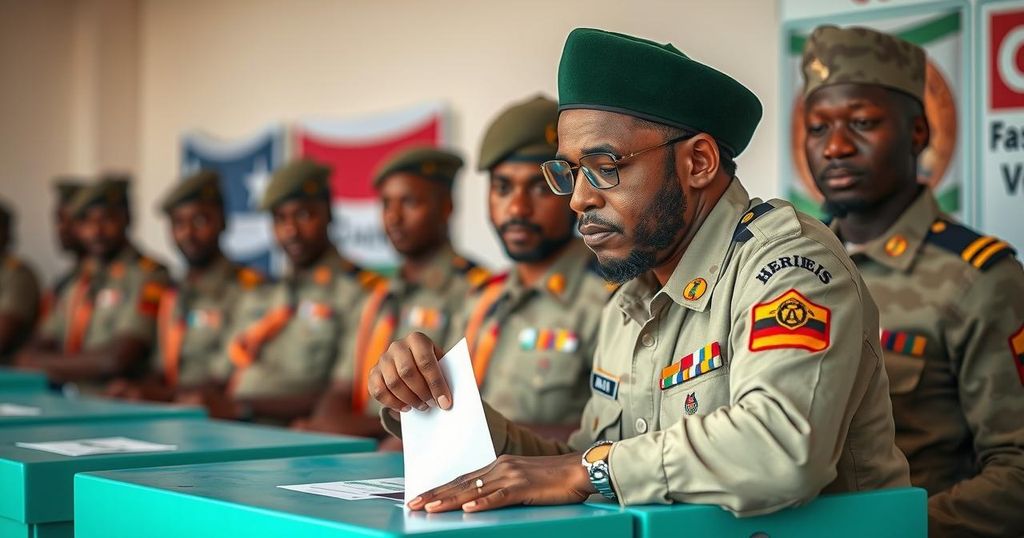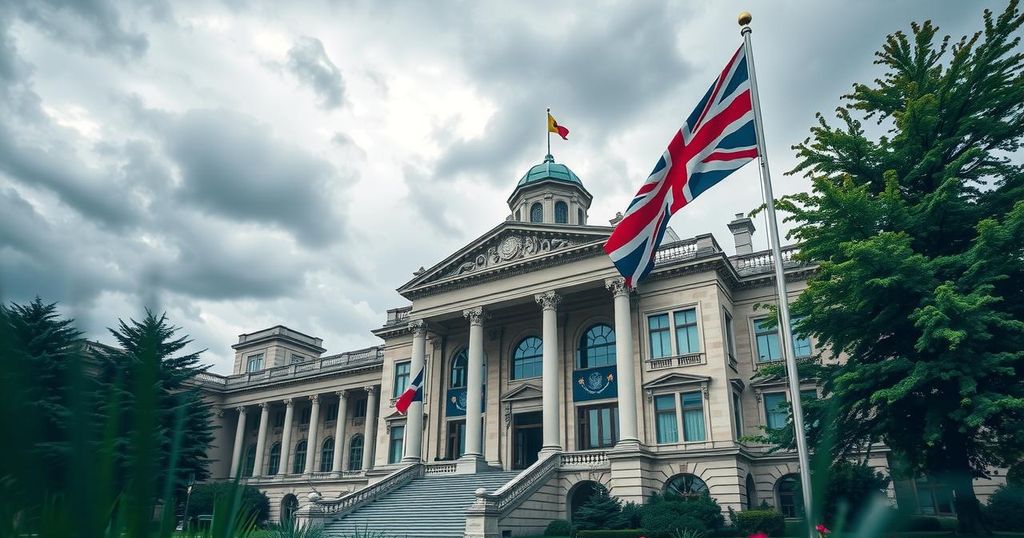Chad Conducts General Election Amidst Opposition Boycott and Low Voter Turnout
Chad voted in a general election on Sunday after three years of military rule, with low turnout due to an opposition boycott. The government claims the election is pivotal for democratic transition, but skepticism remains due to allegations of fraud. The context includes threats from Boko Haram and complicated geopolitical relations. Opposition leaders declare a significant portion of voters remained at home, questioning the election’s legitimacy.
Chad held its general election on Sunday, marking a crucial step in what the government claims is an effort to conclude military rule following three years of governance by the army. Despite official assertions of a democratic transition, voter turnout was anticipated to be low due to an opposition boycott. Early reports from the elections management agency, ANGE, indicated a turnout of merely 38 percent.
Election officials attributed the lack of participation, particularly in affluent areas, to adverse weather conditions. However, opposition leaders argued that their call for abstention has significantly shaped voter behavior. “The overwhelming majority have stayed at home following our call,” stated Succes Masra, leader of the Transformers party.
This boycott potentially allows President Mahamat Idriss Deby Itno’s supporters to dominate the election, a presidency legitimized in May amid accusations of electoral fraud. In a bid to galvanize voters, Deby urged citizens through social media to participate in the election, dubbing the day “historic.”
Several citizens expressed skepticism about the election’s integrity. A construction worker turned motorbike taxi driver characterized voting as “pointless,” while another voter, Patrice Lumumba Deoumoundou, expressed hope for systemic change despite proclaiming, “Nothing’s been done yet.”
Earlier, elections were conducted for military personnel and nomadic populations, citing logistical reasons. Officials insisted the military had a record turnout of over 72 percent. Amid this, the Democratic Party of the Chadian People highlighted allegations of ballot tampering in Bongor, prompting calls for widespread vigilance against potential electoral malpractice.
The elections occur within a fraught environment exacerbated by threats from Boko Haram, the termination of military cooperation with France, and claims of Chadian intervention in the conflict in Sudan. The government positions this election as a pivotal moment in a transition towards democratic governance initiated following the death of former President Idriss Deby in 2021.
Chad has experienced complex political dynamics following the end of President Idriss Deby’s three-decade rule, which came with his death in April 2021. Subsequent military governance led by Mahamat Idriss Deby Itno has been marked by a controversial push towards democracy, especially in light of multiple calls for protests and boycotts by opposition parties due to alleged election fraud. The context of this election is filled with external pressures, including regional instability influenced by Boko Haram’s activities and complex relationships with former colonial powers like France.
The recent general election in Chad, characterized by low voter turnout and opposition boycotts, underscores ongoing political tensions and skepticism regarding the military-led government’s commitment to democratic reform. Allegations of pre-determined election outcomes and prior incidences of electoral fraud have fueled public distrust, complicating Chad’s path towards genuine democratic governance amidst significant regional challenges. As such, the results of this election will critically shape Chad’s future political landscape and public sentiment.
Original Source: www.kpvi.com




Post Comment